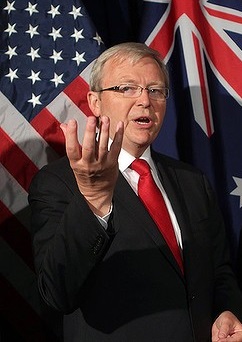UN plans swathed in election doubt
 There is plenty of uncertainty flying around federal politics at the moment, including a lack of assurance over what Australia’s role will be at a United Nations Security Council meeting in September.
There is plenty of uncertainty flying around federal politics at the moment, including a lack of assurance over what Australia’s role will be at a United Nations Security Council meeting in September.
Australia is set to chair the month-long Security Council summit beginning on September 1. It is currently unclear who will attend, with an election date still not set and no official plans announced by the Government.
Australia’s role as president of the Council for a month is a major coup; the country has not sat on the council in over thirty years. Australia has fulfilled its role dutifully as a ‘second-tier’ Council member, but will now join the five permanent members as they decide the shape of several major global events in the coming year.
A trip to the opening of the Security Council summit is not something Prime Minister Kevin Rudd would normally miss, especially this year with the Council meetings coinciding with UN Leaders’ Week. It is strongly suspected Mr Rudd might attend the diplomatic double-whammy, though the PM’s office says an announcement on travel arrangements will be made later "as is normal practice".
Foreign Affairs Minister Bob Carr says Australia has an important role to play in the Security Council meetings. The country has what is known as “pen holder” responsibility, meaning Australia will draft agreements the Security Council reaches when it examines UN involvement after foreign troops leave Afghanistan.
It is set to be an eventful series of meetings, with Australia also presiding over negotiations to try to deal with the crisis in Syria. In previous talks permanent Council members Russia and China have used veto powers three times to block resolutions on Syria.
Australia’s policies and protections for asylum seekers will likely come under close scrutiny by the UN in September too.
Professor Penelope Mathew, an international law expert from the Australian National University says: “It is clear that we are not in the good books with the United Nations High Commissioner for Refugees (UNHCR), one of the key humanitarian organisations... they have been very critical of the various iterations of the Pacific solution and very critical of this latest move the regional resettlement arrangement with Papua New Guinea. So it is clear our reputation has taken something of a hit.”







 Print
Print